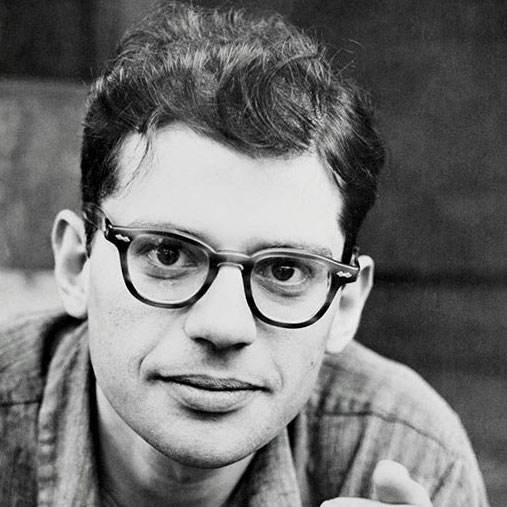What thoughts I have of you tonight, Walt Whitman, for I walked down the sidestreets under the trees with a headache self-conscious looking at the full moon.
In my hungry fatigue, and shopping for images, I went into the neon fruit supermarket, dreaming of your enumerations!
What peaches and what penumbras! Whole families shopping at night! Aisles full of husbands! Wives in the avocados, babies in the tomatoes!—and you, Garcia Lorca, what were you doing down by the watermelons?
I saw you, Walt Whitman, childless, lonely old grubber, poking among the meats in the refrigerator and eyeing the grocery boys.
I heard you asking questions of each: Who killed the pork chops? What price bananas? Are you my Angel?
I wandered in and out of the brilliant stacks of cans following you, and followed in my imagination by the store detective.
We strode down the open corridors together in our solitary fancy tasting artichokes, possessing every frozen delicacy, and never passing the cashier.
Where are we going, Walt Whitman? The doors close in an hour. Which way does your beard point tonight?
(I touch your book and dream of our odyssey in the supermarket and feel absurd.)
Will we walk all night through solitary streets? The trees add shade to shade, lights out in the houses, we'll both be lonely.
Will we stroll dreaming of the lost America of love past blue automobiles in driveways, home to our silent cottage?
Ah, dear father, graybeard, lonely old courage-teacher, what America did you have when Charon quit poling his ferry and you got out on a smoking bank and stood watching the boat disappear on the black waters of Lethe?
Published:
1956
Length:
Regular
Literary Movements:
Beat Generation
Anthology Years:
2020
Themes:
Memory & The Past
Literary Devices:
Alliteration
the repetition of the same letter or sound at the beginning of words appearing in succession
Apostrophe
an exclamatory passage in a speech or poem addressed to a person (typically one who is dead or absent) or thing (typically one that is personified)
Kenning
a compound expression in Old English and Old Norse poetry with metaphorical meaning
Paradox
a situation that seems to contradict itself
Repetition
a recurrence of the same word or phrase two or more times
Rhetorical Question
a question asked for effect, not necessarily to be answered
Transferred Epithet
When an adjective usually used to describe one thing is transferred to another.

